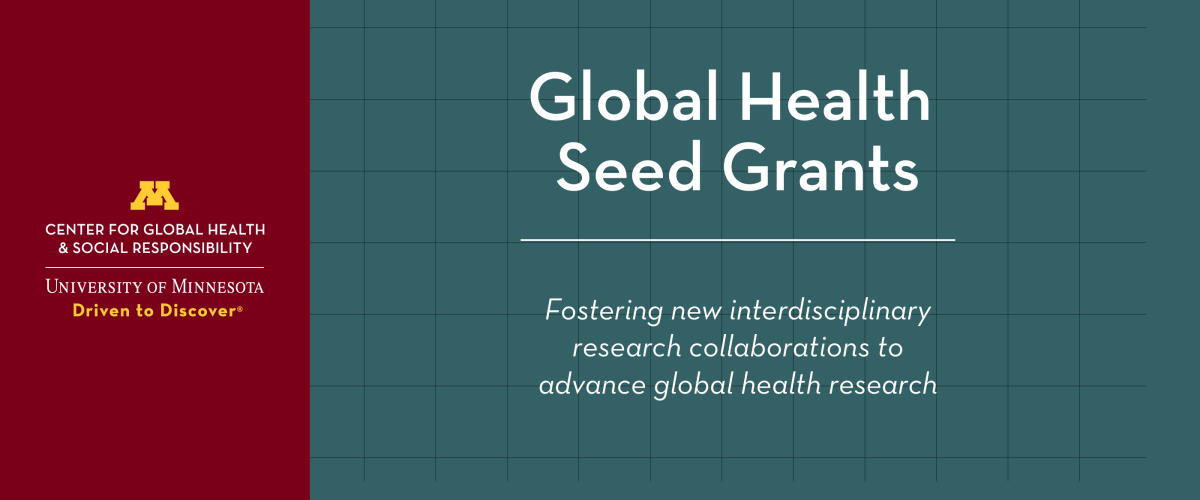2021 Seed Grant Awards Reflect CGHSR Values and Priorities
After a year full of challenges and delays to global health research, the team at the Center for Global Health and Social Responsibility (CGHSR) was encouraged to see that there is still strong interest among University of Minnesota faculty and their international collaborators to initiate innovative research internationally.
We received a robust set of proposals in 2021, and we were impressed by the quality of the science and the strength of the partnerships proposed. The proposals that were selected exemplify the qualities CGHSR aims to nurture through our Global Health Seed Grants Program.
Sustainably building local capacity: Sunil Mor, BVSc & AH, PhD, (College of Veterinary Medicine), proposed a project that includes a next generation sequencing “train the trainer” model in collaboration with his co-PI, Victor Ngu Ngwa, MSc, PhD (University of Ngaoundere). His study examines molecular epidemiology of high consequence animal pathogens in the northern regions of Cameroon, and by including these capacity building components, the project has potential for future research capabilities in Northern Cameroon.
Improving health outcomes for vulnerable populations: Two UMN co-PIs, Barbara McMorris, PhD (School of Nursing) and Gabriela Bustamante, PhD (Medical School) proposed a project with co-investigators at the Universidad San Francisco de Quito aimed at filling the gaps created by the COVID-19 pandemic, with a digital sexual education program targeting indigenous youth in Ecuador they call “Riksiri.” Boyen Huang, DDS, MHA, PhD (School of Dentistry) and Dr. Patimaporn Pungchanchaikul, PhD (Khon Kaen University) proposed another example of an innovative solution for underserved communities through his project that aims to pilot a mobile health tool to be used for remote emergency assessment and support of traumatic dental injuries. This project has the potential to improve oral health outcomes for populations in rural Thailand.
Crossing disciplines to create solutions to health problems: In addition to addressing the needs of underserved populations in rural Uganda, Olihe Okoro, PhD (College of Pharmacy) will also work across disciplines with her collaborator, Tom Ngabirano in the Department of Nursing at Makerere University. Dr. Okoro’s project, which examines a cell phone-based treatment adherence and retention (CARE) intervention to optimize HIV care in Ugandan fishing communities, is also impressive in the way it incorporates learning opportunities for a UMN PhD student in the project implementation plan.
We thank all of the investigators who took the time to submit thoughtful proposals to our seed grant program in 2021, and we acknowledge that there were far more worthy proposals than funds to support them. We hope you’ll consider preparing a proposal for our next funding cycle with the call for proposals to be announced in the first quarter of 2022.
